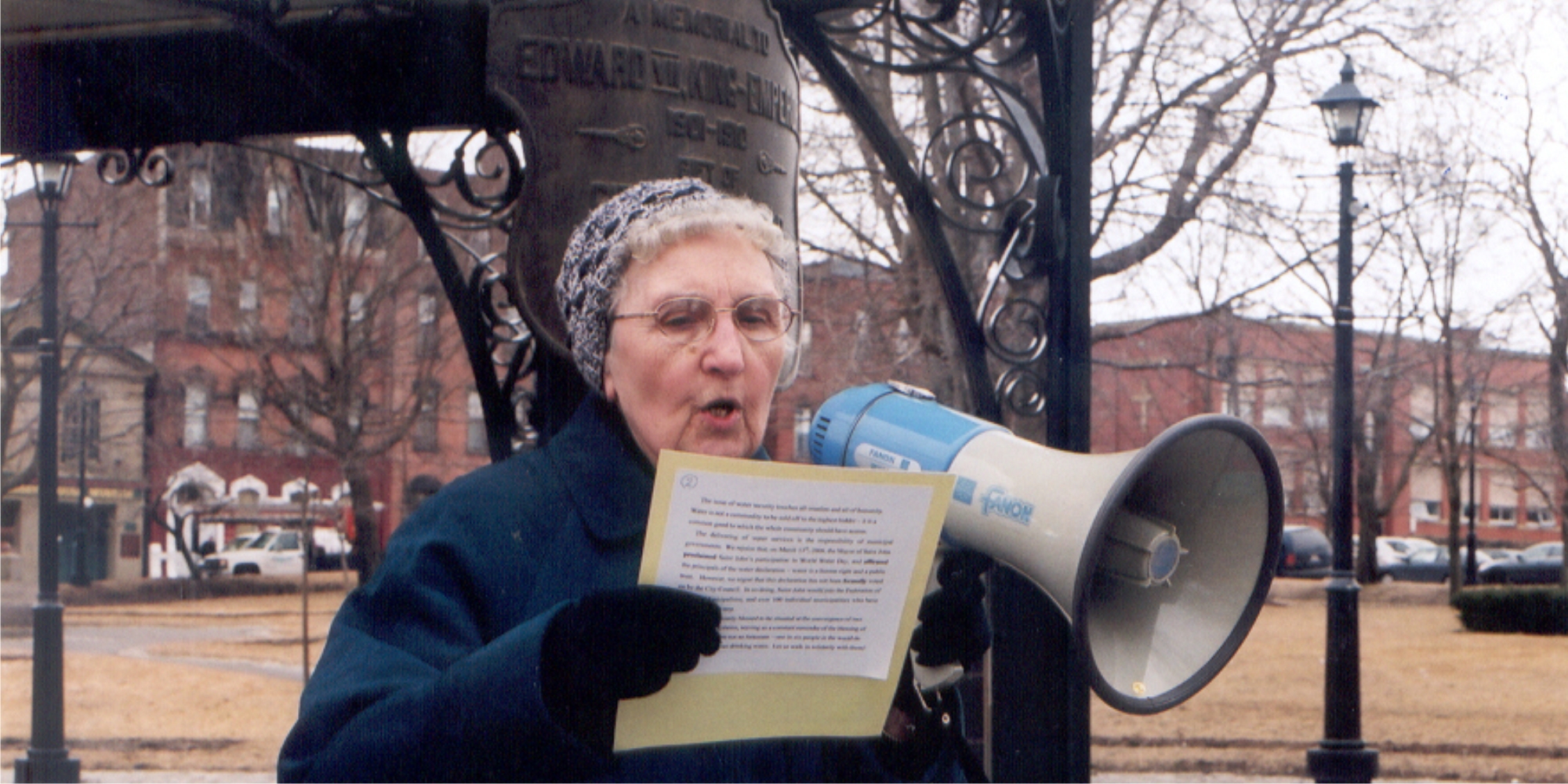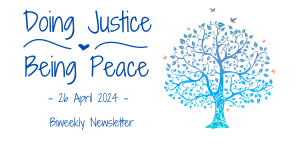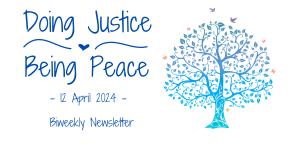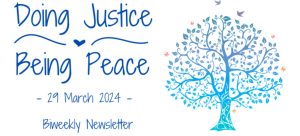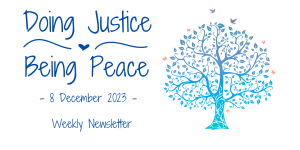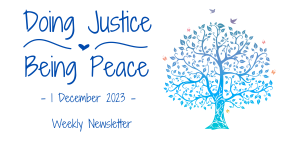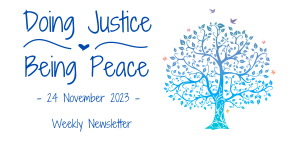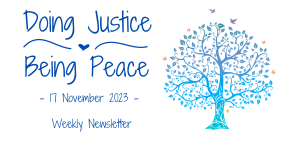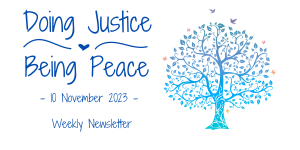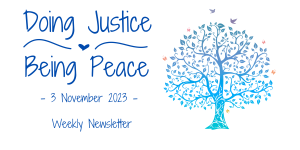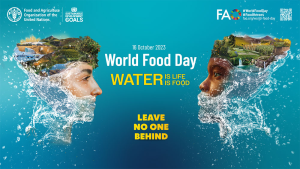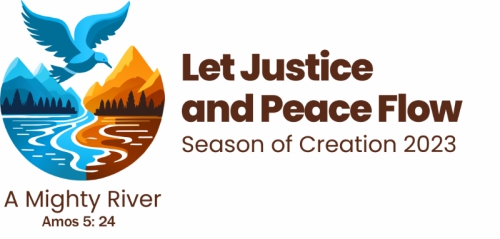May 5th is the National Day of Awareness for Missing and Murdered Indigenous Women, Girls and Two-Spirit People. Initiated by Métis artist Jamie Black’s “REDress Project” in 2010, she hung hundreds of empty red dresses in public spaces, making the alarming numbers of missing and murdered Indigenous women visible. Read more...
Since 1970, International Mother Earth Day on April 22 has mobilized over a billion people in 193 countries to champion environmental stewardship and justice. The global rise in plastic production, which accounts for 6% of world oil consumption contributes to ongoing environmental harm. As plastics degrade, they break into tiny fragments of microplastics, which release toxins into ecosystems. Read more...
Around the world, the right to health for millions is under threat – from climate disasters and migration to pollution and armed conflicts. These events cause illness, suffering and psychological distress. Despite 140 countries recognizing health as a human right, many fail to ensure access to essential services. World Health Day (April 7) themed ‘My health, My right’ advocates for universal access to quality health services, education, safe drinking water, nutritious food, clean air and freedom from discrimination. Read more...
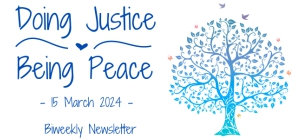 Water can foster peace or ignite conflict. Water scarcity, pollution and unequal access can escalate tensions between communities and countries. Over 3 billion people rely on water that crosses national borders. However, only 24 out of 153 countries sharing rivers, lakes and aquifers have cooperation agreements. World Water Day on March 22 advocates for the safeguarding and peaceful stewardship of all waterways and for equitable access to water around the globe. Read more...
Water can foster peace or ignite conflict. Water scarcity, pollution and unequal access can escalate tensions between communities and countries. Over 3 billion people rely on water that crosses national borders. However, only 24 out of 153 countries sharing rivers, lakes and aquifers have cooperation agreements. World Water Day on March 22 advocates for the safeguarding and peaceful stewardship of all waterways and for equitable access to water around the globe. Read more...
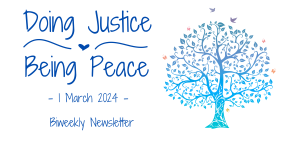 International Women’s Day on March 8 is a celebration of women and girls’ achievements. Stemming from early 20th century labour movements in North America and Europe, this day highlights the ongoing struggle for gender equity and advocates for women’s equal participation in all spheres of life. Read more...
International Women’s Day on March 8 is a celebration of women and girls’ achievements. Stemming from early 20th century labour movements in North America and Europe, this day highlights the ongoing struggle for gender equity and advocates for women’s equal participation in all spheres of life. Read more...
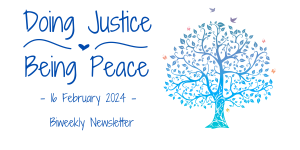 March 1 is World Seagrass Day. Seagrasses look like prairie grasslands or alpine meadows, except they’re underwater. Found in shallow, sheltered coastal areas, they provide important marine habit, nursery grounds, and feeding areas for an array of marine life from lobsters and clams to urchins, sea stars, fish, and turtles. Read more...
March 1 is World Seagrass Day. Seagrasses look like prairie grasslands or alpine meadows, except they’re underwater. Found in shallow, sheltered coastal areas, they provide important marine habit, nursery grounds, and feeding areas for an array of marine life from lobsters and clams to urchins, sea stars, fish, and turtles. Read more...
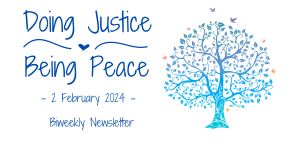 Did you know Canada has 25% of the world’s wetlands? From inland marshes and bogs to coastal estuaries and lagoons, these biodiversity hotspots are home to fish, birds, plants, and animals. Read more...
Did you know Canada has 25% of the world’s wetlands? From inland marshes and bogs to coastal estuaries and lagoons, these biodiversity hotspots are home to fish, birds, plants, and animals. Read more...
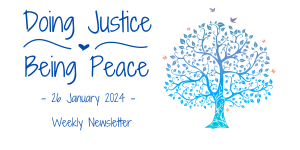 Plastic pollution is harmful to our common home. It litters beaches, parks, woodlands, waterways, and roadsides. In 2019, Canadians threw away 4.4 million tonnes of plastic waste. Only 9 percent of which was recycled. The issue of plastic pollution extends beyond visible waste; it encompasses microplastics – small plastic filaments
Plastic pollution is harmful to our common home. It litters beaches, parks, woodlands, waterways, and roadsides. In 2019, Canadians threw away 4.4 million tonnes of plastic waste. Only 9 percent of which was recycled. The issue of plastic pollution extends beyond visible waste; it encompasses microplastics – small plastic filaments
that injure wildlife, especially marine creatures and birds. Read more...
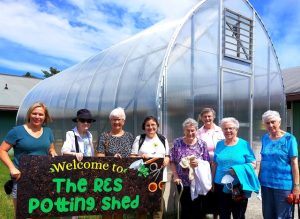 "SEEDING” & VISITING SCHOOL GARDENS
"SEEDING” & VISITING SCHOOL GARDENS
Sisters from Saint John, N.B. enjoyed visits to school gardens in late summer 2022 after donating funds for seeds to the Anglophone South School District. In the photo, they are visiting the “Potting Shed”, a geothermal greenhouse at Rothesay Elementary School where they were welcomed by community school coordinator Rebecca MacKay (left). On Aug. 22, they also visited the outdoor garden at Princess Elizabeth School in Saint John.
Their “Seeds for Students” fundraising initiative arose around Earth Day in spring 2022, when they contacted the school district’s community engagement coordinator. Erica Lane advised them about a high rate of food insecurity and the importance of growing vegetables for some students and families. She selected five schools to receive the Sisters’ donations for their gardens. Sisters look forward to future visits when they can meet with student gardeners. (Photo: Erica Lane)
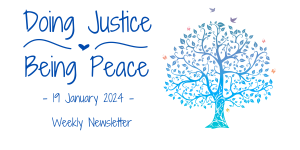 Biodiversity is the heartbeat of our planet. From the tiniest bacteria to towering trees, every organism weaves the complex web of life on which we so fully depend. The biodiversity we see today is the fruit of billions of years of evolution, a masterpiece of natural processes that has created our common home. Read more...
Biodiversity is the heartbeat of our planet. From the tiniest bacteria to towering trees, every organism weaves the complex web of life on which we so fully depend. The biodiversity we see today is the fruit of billions of years of evolution, a masterpiece of natural processes that has created our common home. Read more...
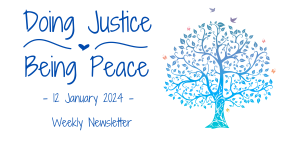 In his New Year’s message, UN Secretary-General António Guterres sees 2024 as a year to build trust and hope. He notes the current scarcity of trust in our world, marked by wars, hate speech, and conflicts. He champions unity as our greatest strength, highlighting the pivotal role of Artificial Intelligence (AI) in achieving this. Read more...
In his New Year’s message, UN Secretary-General António Guterres sees 2024 as a year to build trust and hope. He notes the current scarcity of trust in our world, marked by wars, hate speech, and conflicts. He champions unity as our greatest strength, highlighting the pivotal role of Artificial Intelligence (AI) in achieving this. Read more...
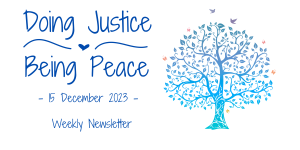 Migrant workers are vital to Canada, contributing to the hospitality, agriculture, caregiving, transportation, and construction sectors. They often endure abuse, low wages, and poor living conditions due to Canada's closed work permit system. This system restricts workers to a single employer, limiting their movements, choices, and their ability to assert their rights. Read more...
Migrant workers are vital to Canada, contributing to the hospitality, agriculture, caregiving, transportation, and construction sectors. They often endure abuse, low wages, and poor living conditions due to Canada's closed work permit system. This system restricts workers to a single employer, limiting their movements, choices, and their ability to assert their rights. Read more...
December 12 is the National Day of Prayer in Solidarity with Indigenous Peoples and the feast day of Our Lady of Guadalupe. This day is an opportunity to recognize the pivotal role women-led and Indigenous grassroots organizations bring to peacebuilding and environmental stewardship in the Global South. Read more...
Did you know that a single tablespoon of healthy soil contains more organisms than there are people on Earth? This micro-universe is
the bedrock of our ecosystems, food production, and well-being.
Healthy soil safeguards nature, filters water, stores carbon, and boosts biodiversity, above and below the ground. Soil forms slowly, over centuries and its health is under threat from urban expansion, excessive use of pesticides and fertilizers, and extreme weather. Read more...
In June 2023, a coalition of senior Vatican officials, church leaders, and Catholic NGOs (non-governmental organizations) met online to discuss the moral and ethical aspects of Loss and Damage.
Loss and Damage is a term that describes the severe impacts climate change (flooding, sea-level rise, drought) is having on vulnerable populations in the Global South, causing unjust hardships, displacement, and forced migration. Read more...
The Conference of the Parties (COP28) to the United Nations Framework Convention on Climate Change will be held in Dubai, United Arab Emirates, from November 30–December 12.
From December 1-3, Pope Francis will be attending COP28. He will be speaking directly to world leaders at the summit and will also help inaugurate the first-ever Faith Pavilion at the Conference. Read more...
In times of conflict and division, dialogue and mutual understanding are essential. Tolerance is an active commitment to embracing cultural diversity, forms of expression, and ways of being human. Read more...
Warfare damages ecosystems and vital resources like farmland and water. “Scorched earth” tactics and leftover explosives create a toxic legacy for future generations. Repeated conflicts over assets such as timber, diamonds, gold, and oil perpetuate a cycle where environmental degradation escalates hostility and obstructs peace. As extreme weather becomes more common, the likelihood of armed conflicts increases in regions vulnerable to water scarcity, desertification, floods, and drought. Read more...
LAUDATE DEUM
Pope Francis’ recent ecological teaching, Laudate Deum, calls for an urgent rethinking of our relationship with nature. Building on the foundation laid by Laudato Si’, eight years ago, he concedes that our efforts have been insufficient as the “world in which we live is collapsing and may be nearing the breaking point.” Read more...
World Food Day
The theme for World Food Day, ‘Water is Life – Water is Food, Leave No One Behind,’ underscores the sacred nature of water and its pivotal role in sustaining all life on Earth.
Despite covering 71% of our planet’s surface, only 2.5% of the world’s water is freshwater, with agriculture and food production being the largest consumers. Read more...
THE JOURNEY OF THE WINGED ONES
As the Season of Creation draws to a close with the Feast of St. Francis of Assisi, we are called to linger on the theme “let justice and peace flow.” This theme is particularly poignant now, during the fall migrations of birds, who cross multiple international borders to reach distant destinations like sub-Saharan Africa, Chile, New Zealand, and Antarctica. Read more...
UN DECLARATION ON THE RIGHTS OF INDIGENOUS PEOPLE (UNDRIP)
The UN Declaration, first adopted by the UN General Assembly in 2007, marked a significant milestone in international human rights law. It affirms the rights of Indigenous peoples worldwide and fosters relations grounded in justice, democracy, respect, and good faith. Read more...

